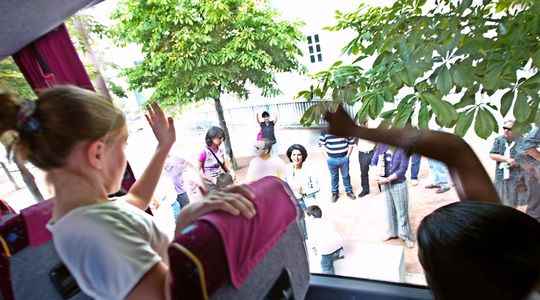At the beginning of August, job offers to be an animator still abound. A holiday center in the Vendée specifies that it is looking for a profile available “from now on”. Both words are written in bold and underlined, as if to signal the urgency of the situation. The ad also bears the words “beginners accepted” and “diploma not required”. Panic rises in the sector of children’s colonies. According to the unions, more than 5,000 positions were still available at the end of June, when the long holidays began.
The health crisis partly explains the situation. The formations had to stop momentarily; the monitors, mostly students, have not all been replaced. “The 30% of turnover are no longer completed by new arrivals”, specifies Vincent Bauquis, the general secretary of an association of professionals in the sector, Resocolo. The lack of staff is however part of a fundamental movement: between 2016 and 2019, registrations in Bafa, the certificate of aptitude for the functions of animator, fell by nearly 30% according to the Injep, the national institute of youth and popular education. is no longer the same”, notes Isabelle Montforte, director of sector animation at the national federation of PEPS, a network of associations in the social sector and which organizes holiday stays.
“We work like crazy”
“It’s a job that we love but it’s not a job to live on”, testifies Anne * who has had her Bafa for only three months. “I valued this job very much but I fell from a very high point,” she regrets. What made him disillusioned? The schedules first, “24 hours a day” she confides. And, then, the level of remuneration. While the Bafa cost her more than 1000 euros, Anne cannot find her account between the weeks of unpaid internship and those at 22 euros gross per day. However, during the internships, says Anne, she and her young colleagues were truly “considered as facilitators in their own right”. Under these conditions, weariness quickly won her over. Julie *, she has been a facilitator for eleven years but regrets not being able to make it her main job because of the working conditions, “too degraded”. “We don’t have good salaries and we work like madmen. Sometimes, over two weeks, I don’t even have a day off because we are short of people”, she sums up with a hint of exasperation .
The unemployment reform dealt the coup de grace to those whose seasonality of work punctuated the way of life. Firstly because unemployment rights now open from six months, against four previously, but also, and above all, because the calculation of benefits now takes into account the days that have not been worked. Thus, Jenna *, 30 years old and animator for twelve years, used to work nine months of the year and be unemployed the following three months. The benefit reform made her decide to change course. She is following a training course to retrain as a florist. “The involvement and the fatigue were immense but there was no recognition. The parents saw us as clowns or even wished us a good holiday,” she recalls.
Restore the taste of commitment
To try to stem this crisis of vocations, the PEPS network wants to “build bridges between the social professions to enhance the experience of a facilitator”, says Isabelle Montforte. The State seized on the question during the Assises de l’animation which delivered their conclusions last February. Among the proposals, the lowering to 16 of the minimum age for training, the shortening of the delays for obtaining the Bafa or even the granting of financial aid to access training. At a time when even the catering sector is struggling to recruit seasonal workers, not sure that is enough.
*Names have been changed
